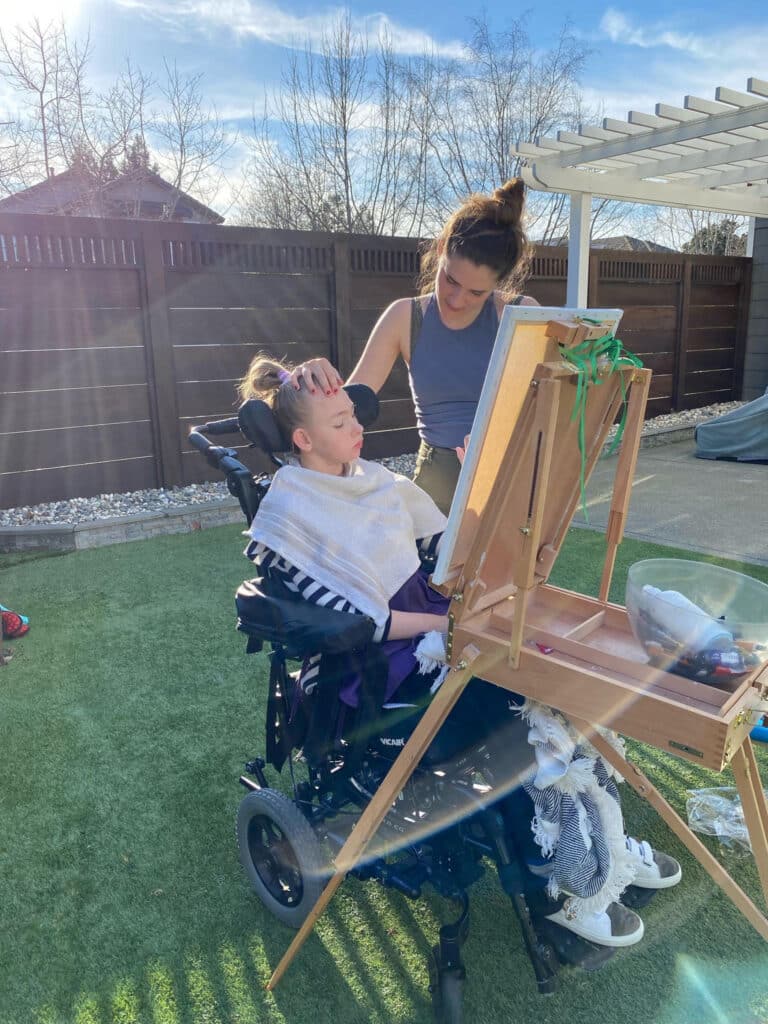Advantages of an Educator as a Live-in Caregiver
Navigating the journey of nurturing a child with special needs is a path filled with incredible moments and distinctive challenges. Families often seek a strong support system to ensure their child’s growth, happiness, and overall development. A fresh and effective solution gaining traction is welcoming a live-in caregiver into the family fold, especially one armed with an educational or social work background. This choice comes with a range of benefits that can transform your child’s life.
Customized Educational Magic.
Imagine a caregiver who brings the magic of education right to your doorstep. With a background in education, these caregivers possess the secret sauce to adapt to your child’s unique learning style. They support in-home lesson plans, incorporate engaging sensory activities, and can harness the latest assistive technologies. This means your child gets a learning experience that’s designed to fit them perfectly, fostering cognitive growth, academic excellence, and overall development.
Building Blocks for Holistic Growth.
Children with developmental needs often need a helping hand not only academically, but also emotionally and socially. Caregivers with a social work background are like superheroes in this realm. They’re skilled in nurturing emotional intelligence, enhancing social skills, and fostering better communication. By offering a comprehensive approach, they help your child build strong connections, develop vital life skills, and thrive in every sphere of life.
The Rock of Consistency.
In a world that can sometimes feel chaotic, having a live-in caregiver is like having a rock of stability. Special needs children thrive on routine, and a familiar caregiver who truly understands their needs can create an anchor of security. This kind of stability works wonders in reducing anxiety and curbing challenging behaviors, as your child finds comfort and confidence in their caregiver’s presence.
Tailored with TLC.
Imagine a scenario where your child is the center of attention, receiving care that’s tailored just for them. Unlike conventional care setups, a live-in caregiver is solely dedicated to your child’s well-being. This personalized attention lets the caregiver uncover your child’s strengths, weaknesses, and passions, creating activities and interventions that match their unique profile.
Dream Team Collaboration.
A live-in caregiver with an educational or social work background is like the missing piece in your child’s support puzzle. They’re pros at collaborating with therapists, teachers, and medical experts in your child’s life. This seamless teamwork ensures that everyone is on the same page.
Lift for the Whole Family.
Here’s the best part – while your child benefits immensely, the whole family reaps the rewards. A live-in caregiver takes some weight off your shoulders, giving you time to focus on self-care, your career, and cherishing moments with your loved ones. This setup reduces burnout, strengthens family ties, and makes room for everyone to flourish.
Picture a world where your special needs child thrives in a tailor-made environment, supported by a caregiver who’s both an educator and an emotional guide. The live-in caregiver with an educational or social work background can be a catalyst for your family’s well-being, painting a brighter future for every member.
Child Care Professionals from Germany in Education:

Educator (Mette)
You can expect a Care Professional with this background to have had 5 years of vocational training. The prerequisite for becoming an educator is to complete the Social Assistant vocational training before (see below). An educator will have completed a 2 year degree as a Social Assistant in addition to a 3 year degree as an Educator.

Social Assistant (Sozialassistent)
You can expect a Care Professional with this background to have completed a 2 year degree, (equivalent to an Associate’s Degree in the U.S.) This is the prerequisite training for pursuing educational careers, such as a preschool, kindergarten teacher or educator.

Childcare Provider (Kinderpflegerin)
A German Kinderpflegerin has completed a 2 to 3 year training at a vocational school specializing in childcare. The curriculum includes practical experience which can take place inthe classroom or in the home.

You can expect a Care Professional with this background to have a 4 year Bachelor’s Degree. This field focuses on providing help and support to those in need. After completing a program or course, professional social workers may have the education necessary to develop community programs, provide counseling and legal support for families, or advocate for children’s rights.
Child Care Professionals from the United States in Education:

Pre K/Elementary School Teacher
A Pre-K Teacher, also known as a Preschool Teacher or Early Childhood Educator, is a professional who specializes in teaching and caring for young children typically between the ages of 3 and 5 years old.
Degree: Bachelor's Degree in Education or a Related Field: Most aspiring teachers pursue a bachelor's degree in Early Childhood Education or Elementary Education. They also need to complete a Teacher Preparation Program to complete their degree. Duration: The duration to become a Pre-K teacher can range from 2 -6 years or more, depending on the level of education someone pursues, the requirements of the state or region, and any additional experience.

Teacher Assistant or Paraprofessional:
Degree: Some schools and educational settings may prefer candidates with an associate's degree in Early Childhood Education, Elementary Education, or a related field. Many states and school districts offer training programs or certifications for Teacher Assistants.
Duration: Can range from a few months to a couple of years, depending on the educational path someone chooses.

Special Education Teacher
Degree: A graduate (bachelor’s degree or master’s degree) in special education, and pass the relevant state’s required tests for special education teachers.
Duration: 4- 8 years, depending on the level of education someone pursues, the requirements of the state or region, and any additional experience.
